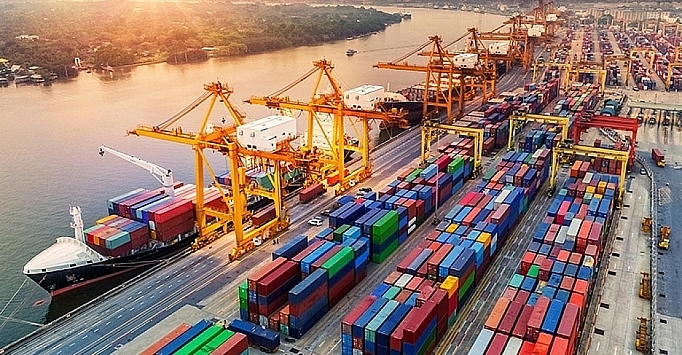Patience vital as EU endeavours to reverse fortunes
 |
| Patience vital as EU endeavours to reverse fortunes, illustration photo |
According to Nicolas Audier, chairman of the European Chamber of Commerce in Vietnam (EuroCham), it is hoped the continent is now starting to turn the corner in the fight against COVID-19, both thanks to the actions of individual governments and of the EU itself.
He further noted that EU countries will each take their own approach to softening social distancing restrictions. They will likely do so at different speeds and at different times, depending on the impact of the crisis in their own countries. So, while on the whole the number of new cases appears to be falling, exporters in Vietnam should bear in mind that some countries may be able to return to normal sooner than others, and there will inevitably be a variation across the EU in terms of their consumer spending and other commercial activities.
Michele D’Ercole, president of the Italian Chamber of Commerce in Vietnam (ICHAM), told VIR that Italy is set to begin easing its coronavirus restrictions on May 4 after nearly two months of lockdown. “While other EU countries like Germany, France, and Spain may be more open in lifting their restrictions, Italy will remain strict in its actions. Restaurants, bars, and entertainment businesses remain closed until June, while factories and building sites are allowed to re-open from May 4.”
D’Ercole added that travel between regions remains suspended to curb the spread of the virus. Vietnam can still export to the EU market as the products market is still open. However, the demand for products from Vietnam such as textiles and garments will be low when the lockdown is partially lifted. “Nevertheless, the demand will increase later on as people return back to a new normal,” he said.
According to the Vietnamese Ministry of Industry and Trade, there will be a decrease in exports of key products from Vietnam to the EU like computers, phones, and accessories in the second quarter of 2020 due to supply chain disruptions and shrinking demand. However, it is predicted that the purchasing power of agricultural products and food will remain high.
The prospect of export activities to the EU market will improve as COVID-19 is likely to be contained and the EU-Vietnam Free Trade Agreement (EVFTA) comes into force. The EVFTA, which is set to take effect this summer, will pave the way for more “Made-in-Vietnam” products to enter the EU market.
While EU countries are preparing to lift their lockdowns, Vietnam has flattened the infection curve and on April 23 became the first ASEAN country to start relaxing some lockdown measures.
Audier from EuroCham lauded Vietnam as one of the international success stories of the global health crisis. In taking swift and effective steps – from public health actions to economic stimulus measures – the country has helped protect the health of its citizens while also mitigating the impact on its economy as much as possible. Indeed, it should be considered as a model for other countries to follow.
“During the social isolation phase, the government and ministries have been working with international chambers of commerce such as EuroCham to overcome challenges and help enterprises to maintain their operations wherever it is safe to do so,” said Audier. “Even so, over 90 per cent of our members have been negatively affected during the last few months, according to our latest Business Climate Index survey. Therefore, there is no doubt that the strategic, gradual lifting of social distancing measures will help our members to get slowly and safely back to work.”
According to D’Ercole from ICHAM, Vietnam’s fight against the pandemic has reaped good results. The country of 97 million people has fewer than 300 cases and no deaths. Vietnam has proved to foreign investors like Italy that it is a safe investment destination. Indeed, some Italian firms are considering opening branches in Vietnam to lessen the risk of reliance on China.
“Italian companies are focusing on dealing with problems back home,” D’Ercole said. “However, they are likely to invest in Vietnam in the future, thanks in no small part to its very attractive investment climate and successful fight against the virus. Indeed, many ICHAM members are planning to maintain operations in Vietnam as the country has managed to flatten the coronavirus curve and relax social distancing measures.”
What the stars mean:
★ Poor ★ ★ Promising ★★★ Good ★★★★ Very good ★★★★★ Exceptional
Themes: COVID-19
- 67 million children missed out on vaccines because of Covid: UNICEF
- Vietnam records 305 COVID-19 cases on October 30
- 671 new COVID-19 cases recorded on October 1
- Vietnam logs additional 2,287 COVID-19 cases on Sept. 21
- People’s support decisive to vaccination coverage expansion: official
Related Contents
Latest News
More News
- Hermes joins Long Thanh cargo terminal development (February 04, 2026 | 15:59)
- SCG enhances production and distribution in Vietnam (February 04, 2026 | 08:00)
- UNIVACCO strengthens Asia expansion with Vietnam facility (February 03, 2026 | 08:00)
- Cai Mep Ha Port project wins approval with $1.95bn investment (February 02, 2026 | 16:17)
- Repositioning Vietnam in Asia’s manufacturing race (February 02, 2026 | 16:00)
- Manufacturing growth remains solid in early 2026 (February 02, 2026 | 15:28)
- Navigating venture capital trends across the continent (February 02, 2026 | 14:00)
- Motivations to achieve high growth (February 02, 2026 | 11:00)
- Capacity and regulations among British areas of expertise in IFCs (February 02, 2026 | 09:09)
- Transition underway in German investment across Vietnam (February 02, 2026 | 08:00)

 Tag:
Tag:




















 Mobile Version
Mobile Version